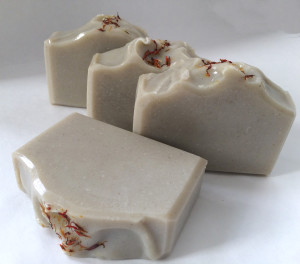 If you’ve been following some of the news surrounding the Personal Care Products Safety Act of 2015, a bill introduced by Senators Dianne Feinstein (D-CA) and Susan Collins (R-ME), you may have read some alarming and even irresponsible reporting that led you to believe that the U. S. Government is about to shut down all handmade soapers for good.
If you’ve been following some of the news surrounding the Personal Care Products Safety Act of 2015, a bill introduced by Senators Dianne Feinstein (D-CA) and Susan Collins (R-ME), you may have read some alarming and even irresponsible reporting that led you to believe that the U. S. Government is about to shut down all handmade soapers for good.
This simply isn’t the case, and you have no cause to be worried about New England Handmade Artisan Soaps or most of your other favorite handmade soapers. In fact, this bill is not likely to impact my business in its current form.
Kenna of Modern Soapmaking has done a tremendous job breaking down the bill and explaining the parts that are of most concern to soapmakers. Her work is so thorough that I will not reproduce it here, but I do feel compelled to address the most common concerns I have seen raised in articles about the bill.
- Congress is cracking down on homemade soap. No, Congress is not targeting handmade soap. This bill is an amendment to the Federal Food, Drug, and Cosmetic Safety Act designed to “ensure the safety of cosmetics.” Handmade cosmetics are not being targeted any more than any other company that manufactures cosmetics is being targeted. The argument is that smaller businesses cannot afford the fees associated with registering products, but businesses that make less than $100,000 per year are exempt entirely from the requirement, businesses that make between $100,00 and $500,000 a year are exempt from the fee, and businesses that make between $500,000 and $2,500,000 would pay not more than $250 annually. Fees are graduated from there. I believe that very few homemade soapers would be impacted by this bill at all, and those soapmakers that are impacted are not going to be driven out of business by the regulations.
- This bill will make it impossible for small soap companies to remain in business. Actually, this bill just requires that soaping businesses earning more than $100,000 per year register and provide lists of the ingredients they use as well as report known adverse events. Labeling requirements will be stricter, but I personally think they should be. Right now, I am not required to label the ingredients in my soap at all as long as I make no cosmetic claims about it. I think that’s wrong. People buy handmade soap precisely because they want to know what’s in their soap. I should add that my friends in Europe who make soap currently DO have to comply with the same types of regulations that this bill would introduce, and as far as I know, it has not adversely affected their businesses. Celine Blacow of iamhandmade.com is one example of a personal friend. I am sure there are many others.
- Handmade soaps are all natural and much safer than commercial soaps, so this bill makes no sense. The government should worry about commercial soapmakers. Even if the bill were only directed at handmade soapers, which isn’t the case, and even though handmade soaps are perhaps more natural and safer than commercial soaps, it is really commercial soapmakers that this bill will affect the most because it is commercial soapmakers who are more likely to use the specific ingredients that Senators Feinstein and Miller suggested be reviewed for safety in the act’s first year: diazolidinyl urea, lead acetate, methylene glycol, propyl paraben, and quaternium-15.¹
My advice to anyone who is worried is first of all, read the bill. Second, follow its progress in Congress. Supposedly, May 10 was supposed to be the day we learned whether or not the bill had made it out of the Committee on Health, Education, Labor, and Pensions, but I can’t tell that the committee has acted on this bill. If it passes the committee’s hearing, it will be voted upon by the Senate, then the House, and then signed into law by the President before it becomes law, so it has some distance to go. You can sign up to receive alerts on the bill on Congress.gov like I did. Finally, you can write to your Senators and Representatives and let them know you want to make sure that whatever version of the bill passes through their hands includes provisions that will not make the law too onerous for small businesses to comply with.
Most of all, it is important to educate yourself about the bill’s details before worrying that it is the end of the handcrafted soap industry. I am quite concerned about the amount of misinformation being distributed mainly because it is scaring my customers and my soapmaking friends.
Diazolidinyl urea, propyl paraben, and quaternium-15 are preservative agents (quaternium-15 is also a surfactant). Lead acetate and methylene glycol are used in hair products (dyes and straighteners). Asking for a review does not mean these ingredients are not safe.

